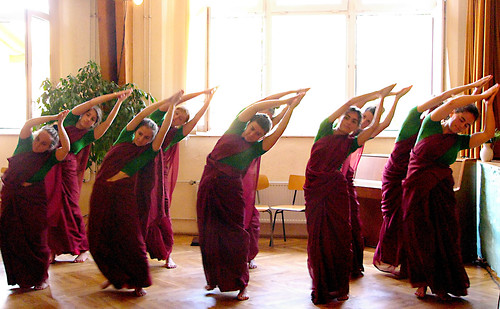I’ve written about flow and work elsewhere. Lately I’ve become interested in multipersonal flow – a flow state that is achieved as part of a team, where multiple people are experiencing flow while interacting with each other. You can see what Jim and Michele McCarthy have to say about multipersonal flow in Software For Your Head.
Why does this matter? Well, flow is highly correlated with personal growth. Teams that help their members enter flow states can grow faster than other teams – since their members are in the zone of personal growth. Since flow is also related to enjoyment (but not pleasure) this means team members will have more satisfying work experiences. It’s important for growth and enjoyment to be linked, so that people and teams will want to increase their skills and challenges. Consistently choosing more challenging experiences is what leads to greatness.
Flow can be difficult to find for individuals – Csíkszentmihályi says in his books that many people experience flow only rarely. However, some people often experience flow, and Csíkszentmihályi calls them autotelic individuals. The skills to find flow can be learned, and while there is not much written about the subject, I think it’s easier to find flow with a bunch of other people who are also seeking it, and who are all using practices that lead to flow, like the Core Protocols.
There are other ways to experience multipersonal flow, for instance in sports, music, dance, or multiplayer online video games, but I don’t know much about ways that are centered in the realm of creative work. In the realm of creating computer software, the only other example of people systematically seeking multipersonal flow that I have seen is on Extreme Programming (XP) teams. While the XP originators do not set it as an explicit goal, pair programming, when combined with the other XP values on a healthy team, seems to be able to produce this mental state in team members with some reliability. But XP seems to only be able to do this with programmers, not across an entire cross-functional (business and technical) team.
I also think multipersonal flow is a key feature of #CultureHacking since the goal of culture hackers is to produce team situations where people are learning, growing, and having fun together while delivering effective results. I think companies that do this will be more successful than companies that don’t.
Are there other work methodologies that can do this? If so, will you let me know? I would like to know about them.
